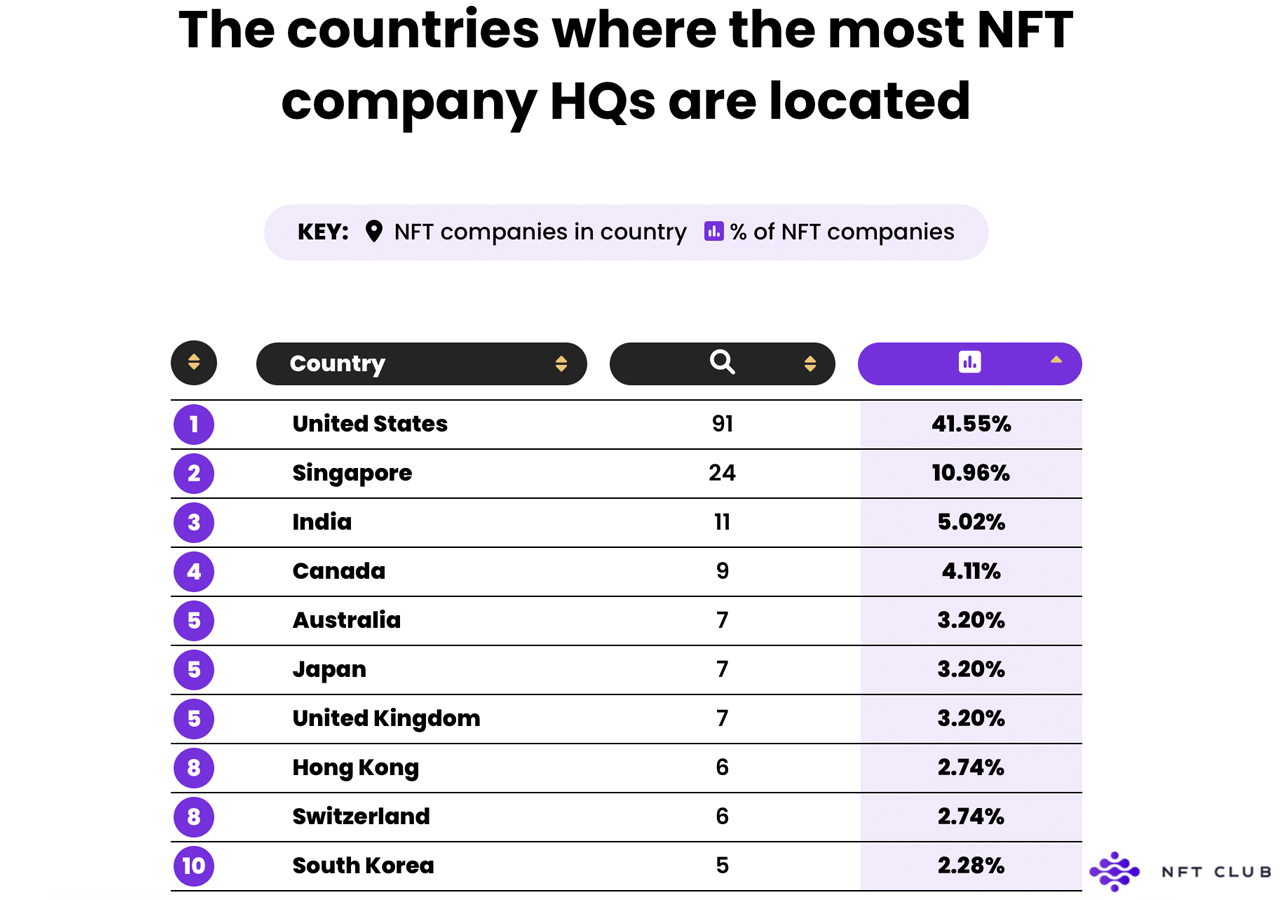According to a study called “A World of NFT Adoption” published by nftclub.com, the United States has the most non-fungible token (NFT) company headquarters in the world. While the U.S. captures more than 41% of the NFT companies worldwide, the second largest number of NFT startup locations stems from Singapore, as the country hosts over 10% in the region.
91 NFT Companies Reside in the US, Singapore Follows With 24 Startups, Taiwan Leads the World in Terms of NFT Interest
NFT Club published a research report that analyzes Google searches related to non-fungible tokens and the quantity of NFT companies worldwide. The study shows the country with the most interest in NFTs, according to NFT-related Google queries per 100,000 people. According to NFT Club’s statistics, Taiwan leads the world with 2,300,330 searches and a population of around 23,888,595 residents.
“Using Google search data, we were able to identify which countries make the most NFT-related searches,” NFT Club’s study notes. “We looked at a range of common NFT search queries and found their total volumes over the last year for 50 different countries in order to reveal the place where people are the most interested in non-fungible tokens.”
NFT searches are also popular in Australia, as the country holds the second-largest position in terms of interest. The number of NFT searches down under clocked in at 2,137,060 queries among a population of around 26,068,792 citizens. While Taiwan and Australia captured the top two positions in terms of NFT interest by country per 100,000 people, Canada, Iceland, and New Zealand follow.

NFT Club’s research also details that the United States is home to the highest-funded NFT company, Forte Labs, and the second-highest funded startup, Sorare, stems from France. The U.S. leads in terms of the most NFT companies worldwide with 91 firms recorded, which shows the U.S. is home to 41.55% of all the NFT startups. Singapore has 24 NFT companies located in the country, which equates to 10.96% of all the NFT startups globally.
India today has the third-largest number of NFT companies located in the country, with 11 businesses total or 5.02% of the global aggregate. India is followed by Canada, Australia, Japan, and the United Kingdom, respectively. In addition to leading with the most NFT firms, the U.S. hosts five of the ten highest-funded NFT companies. The list of U.S.-based NFT firms includes Forte Labs, Opensea, Fancraze, Genies, and Pixel Vault, with a combined $1.6 billion in funding raised.
What do you think about NFT Club’s recent study? Let us know what you think about this subject in the comments section below.
Image Credits: Shutterstock, Pixabay, Wiki Commons
Disclaimer: This article is for informational purposes only. It is not a direct offer or solicitation of an offer to buy or sell, or a recommendation or endorsement of any products, services, or companies. Bitcoin.com does not provide investment, tax, legal, or accounting advice. Neither the company nor the author is responsible, directly or indirectly, for any damage or loss caused or alleged to be caused by or in connection with the use of or reliance on any content, goods or services mentioned in this article.



